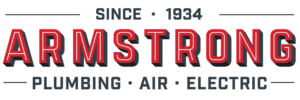Known as the “Silent Killer”, carbon monoxide (CO) is a tasteless, scentless, invisible gas that can occur in any home at any time—it may even be in your home right now. Don’t take the chance. Make sure that you and your loved ones are protected!
With all of the hustle and bustle of daily life it’s easy to forget that your home’s heating system needs a comprehensive check up before you switch that thermostat to HEAT when the weather turns cold!
Improperly operating furnaces can cause many serious problems, but among the most serious is a system that is not venting flue gases out of your home properly. Due to a plugged or collapsed chimney or a crack or hole in a heat exchanger, carbon monoxide poisoning can kill everyone in your home. It is an odorless, colorless gas that kills most people while they are sleeping. They simply never wake up.
To ensure your family’s safety, you should take the following steps, according to the U.S. Consumer Safety Commission:
- Make sure appliances are installed and operating according to the manufacturer’s instructions and local building codes. Most appliances should be installed by qualified, trained professionals.
- Have the heating system professionally inspected and serviced annually to ensure proper operation. An inspector should also check chimneys and flues for blockages, corrosion, partial and complete disconnections, and loose connections. The US Environmental Protection Agency says that a heating and air conditioning maintenance plan can pay for itself in energy savings alone. In today’s economy this is a great reason to have your heating and cooling systems serviced by an HVAC professional on a regular basis. Safety is an even more important consideration. A professional inspection of your heating system can help identify and correct safety problems that undetected can lead to problems as simple as your furnace not working and as serious as fire and death.
- Never service fuel-burning appliances without proper knowledge, skill and tools. Always refer to the owner’s manual when performing minor adjustments or servicing fuel-burning equipment.
- Never operate a portable generator or any other gasoline engine-powered tool either in or near an enclosed space such as a garage, house, or other building. Even with open doors and windows, these spaces can trap CO and allow it to quickly build to lethal levels.
- Install a Carbon Monoxide (CO) alarm that meets the requirements of the current safety standards. A CO alarm can provide some added protection, but it is no substitute for proper use and upkeep of appliances that can produce CO. Install a CO alarm in the hallway near every separate sleeping area of the home. Make sure the alarm cannot be covered up by furniture or draperies. The U.S. Consumer Product Safety Commission (CPSC) recommends that every home have a carbon monoxide (CO) alarm. CPSC also urges consumers have a professional inspection of all fuel- burning appliances — including furnaces, stoves, fireplaces, clothes dryers, water heaters, and space heaters — to detect deadly carbon monoxide leaks. CPSC recommends that every home have at least one CO alarm that meets the most recent requirement standards.
- Never use portable fuel-burning camping equipment inside a home, garage, vehicle or tent unless it is specifically designed for use in an enclosed space and provides instructions for safe use in an enclosed area.
- Never burn charcoal inside a home, garage, vehicle or tent.
- Never leave a car running in an attached garage, even with the garage door open.
- Never use gas appliances such as ranges, ovens or clothes dryers to heat your home.
- Never operate non-vented, fuel-burning appliances in any room where people are sleeping.
- Do not cover the bottom of natural gas or propane ovens with aluminum foil. Doing so blocks the combustion air flow through the appliance and can produce CO.
- During home renovations, ensure that appliance vents and chimneys are not blocked by tarps or debris. Make sure appliances are in proper working order when renovations are complete.







